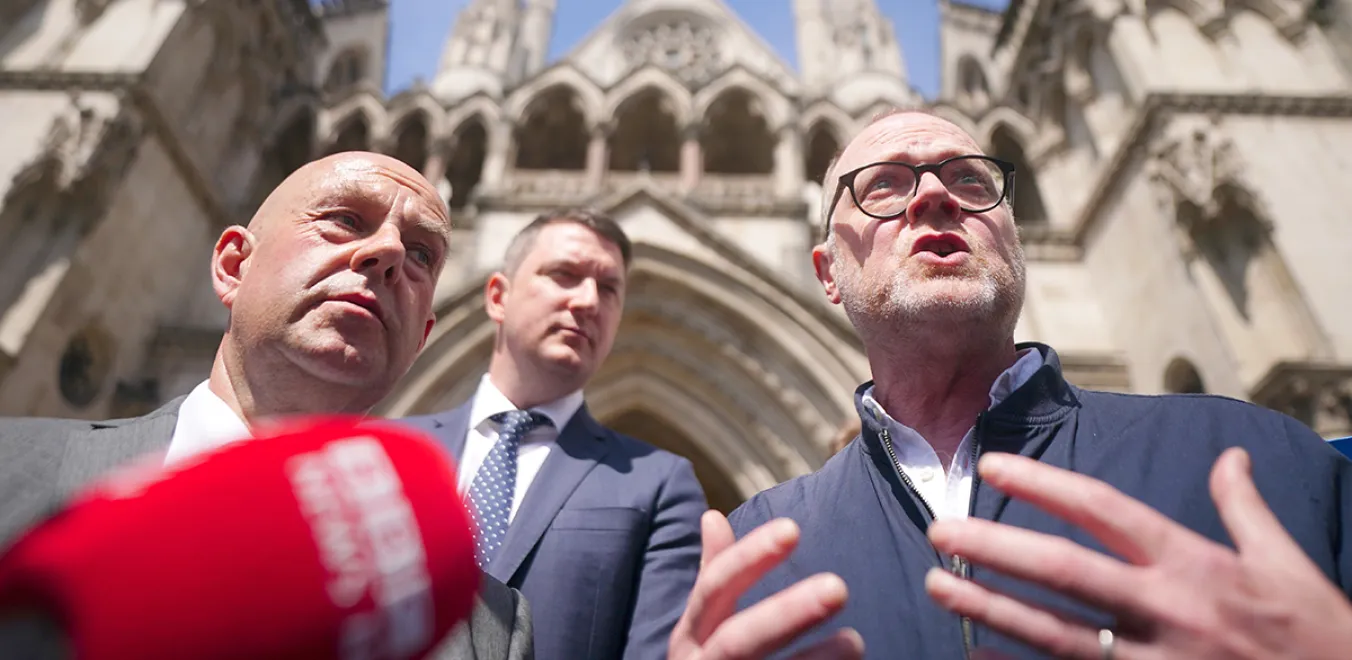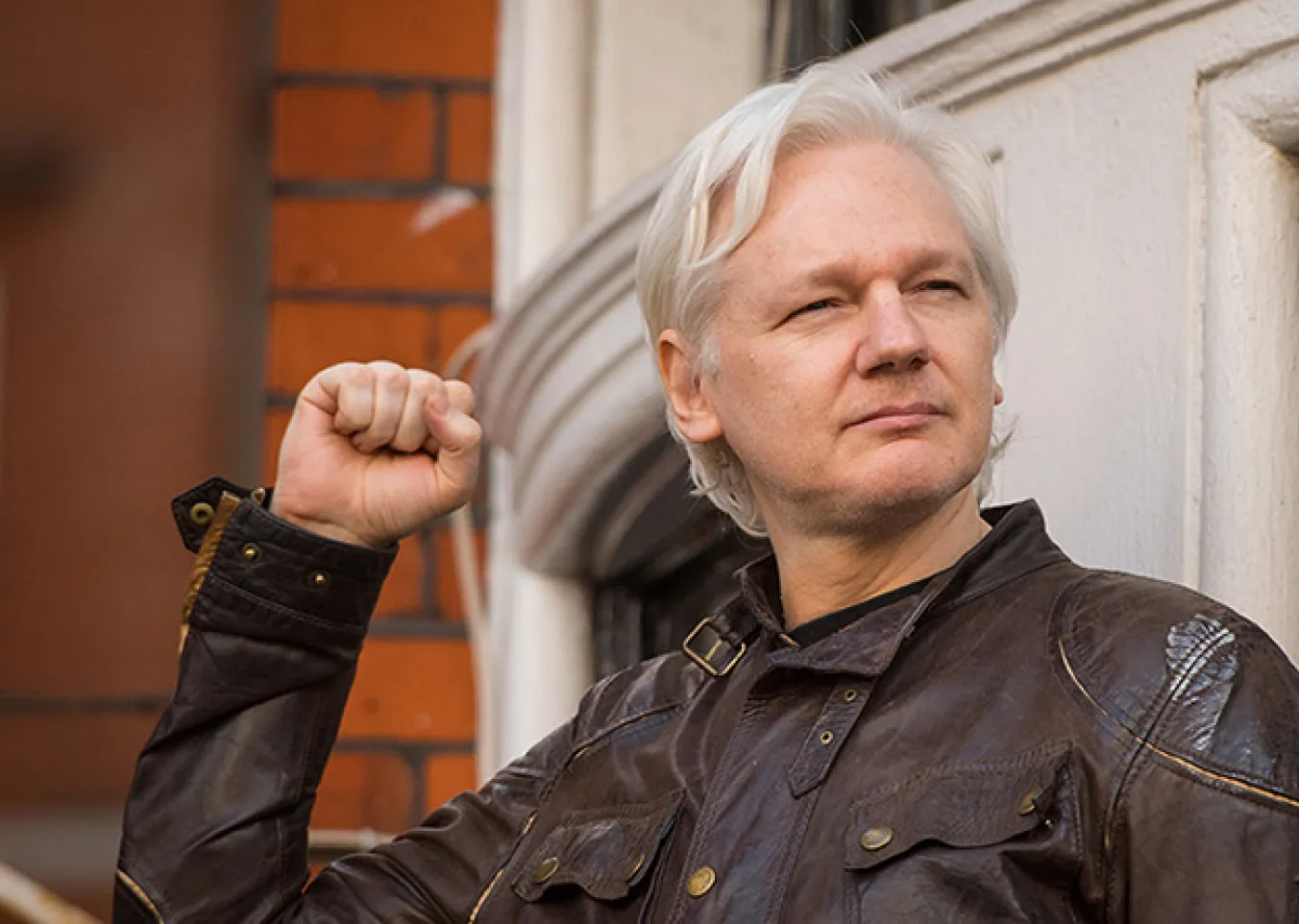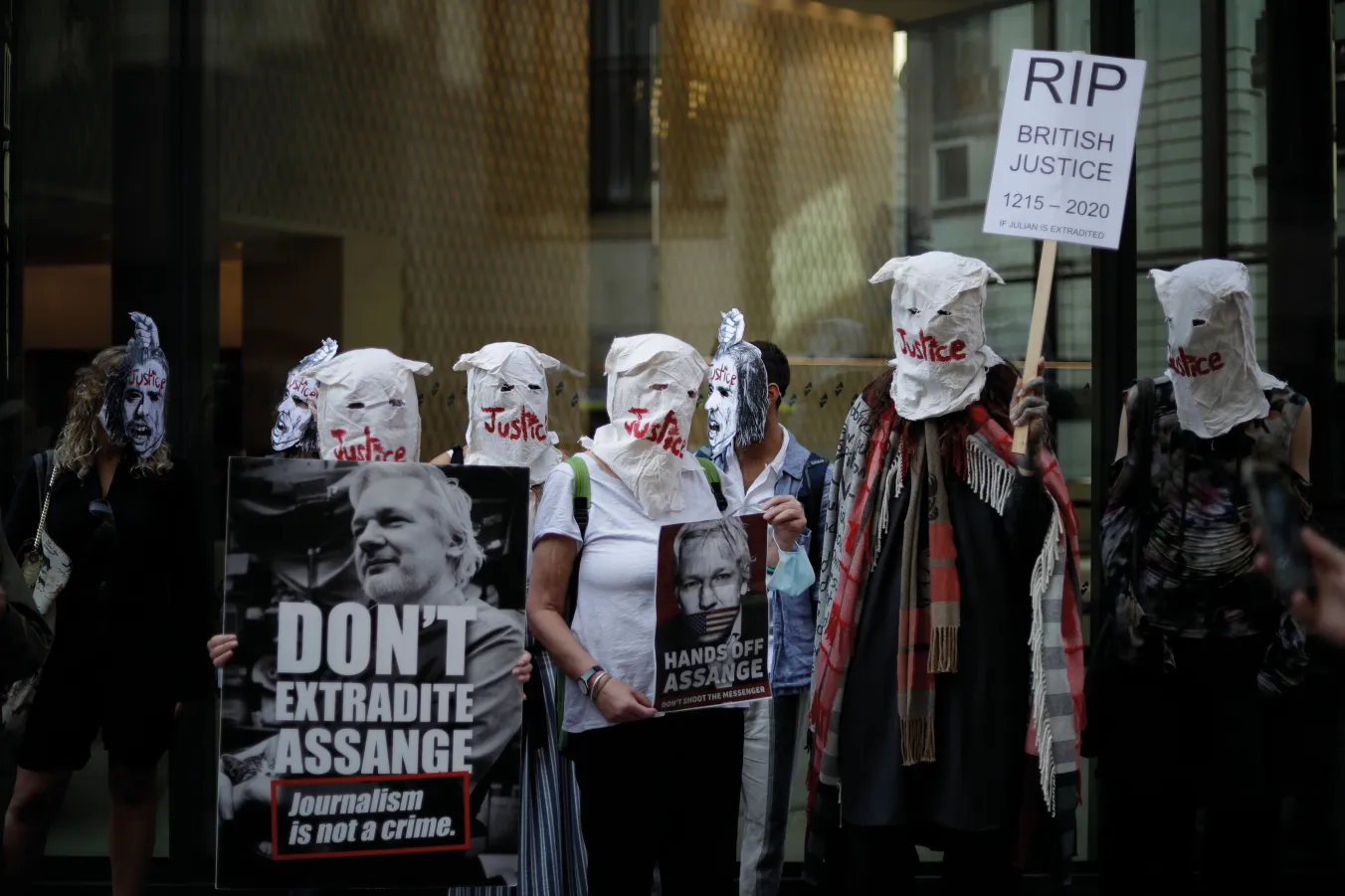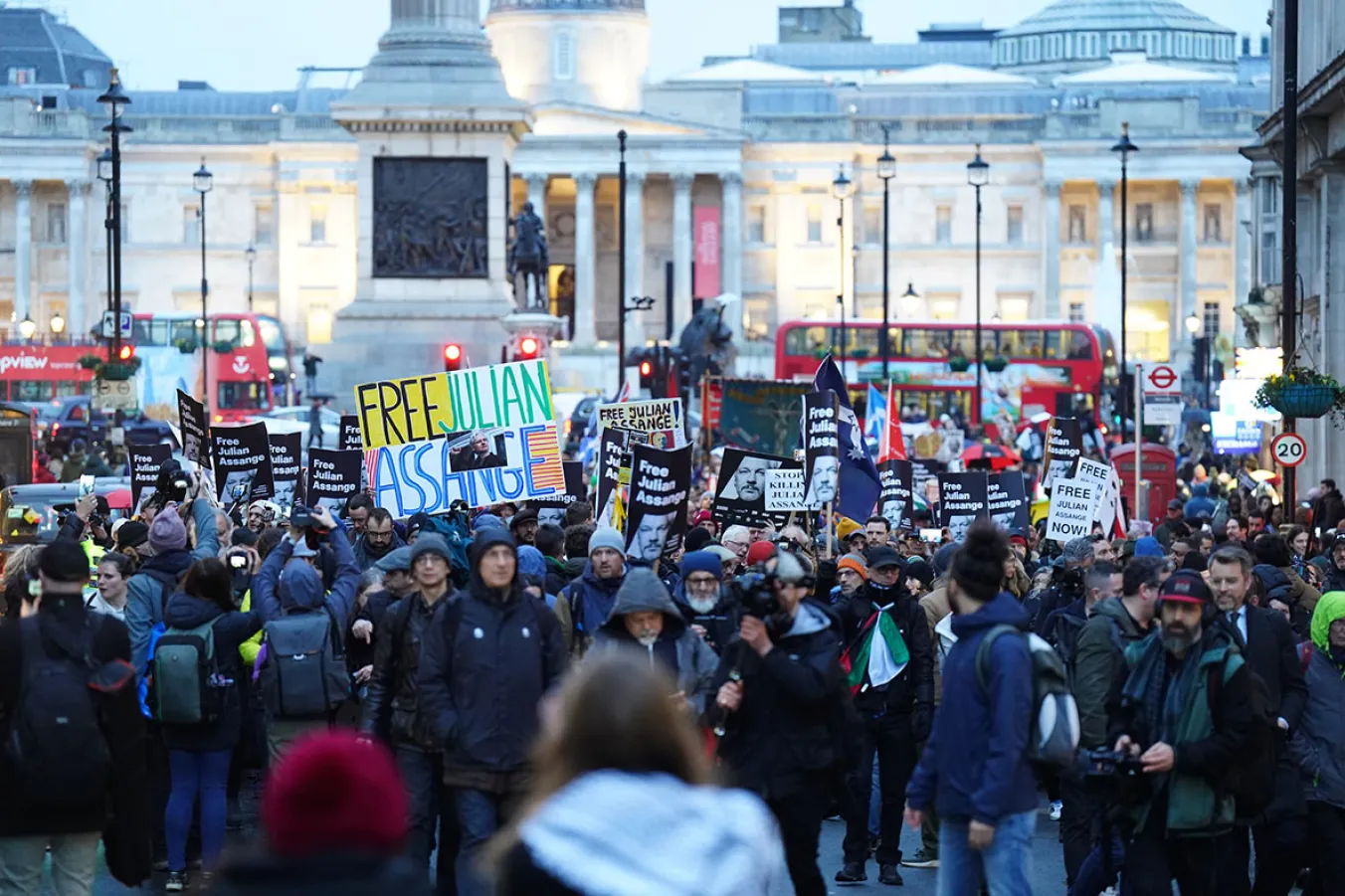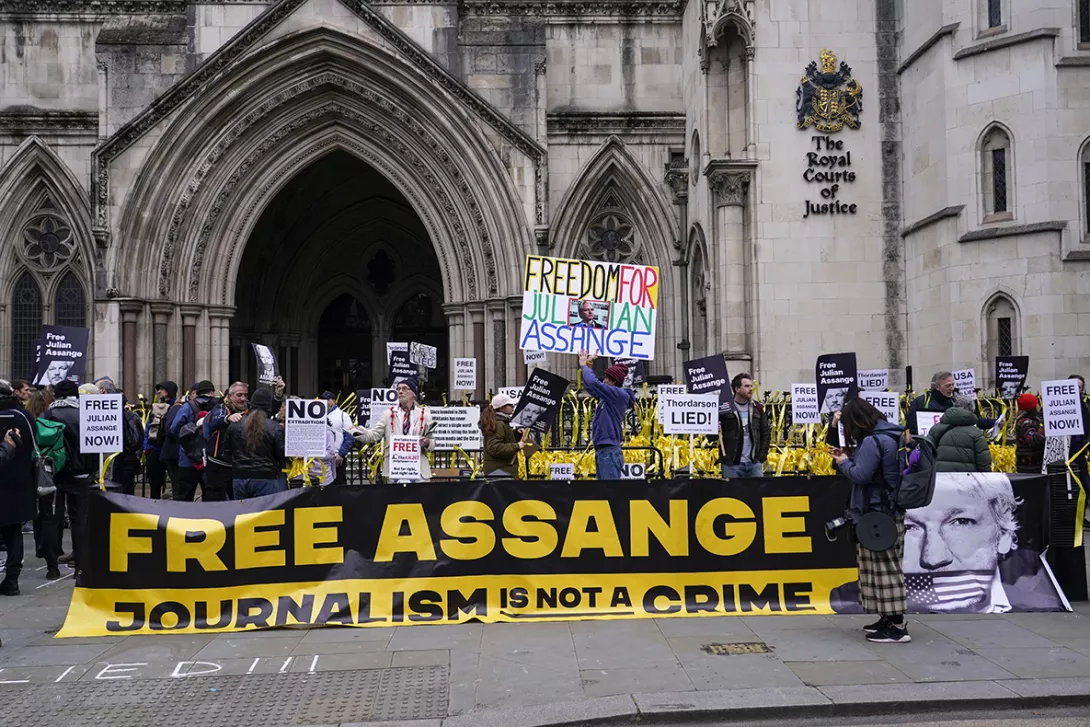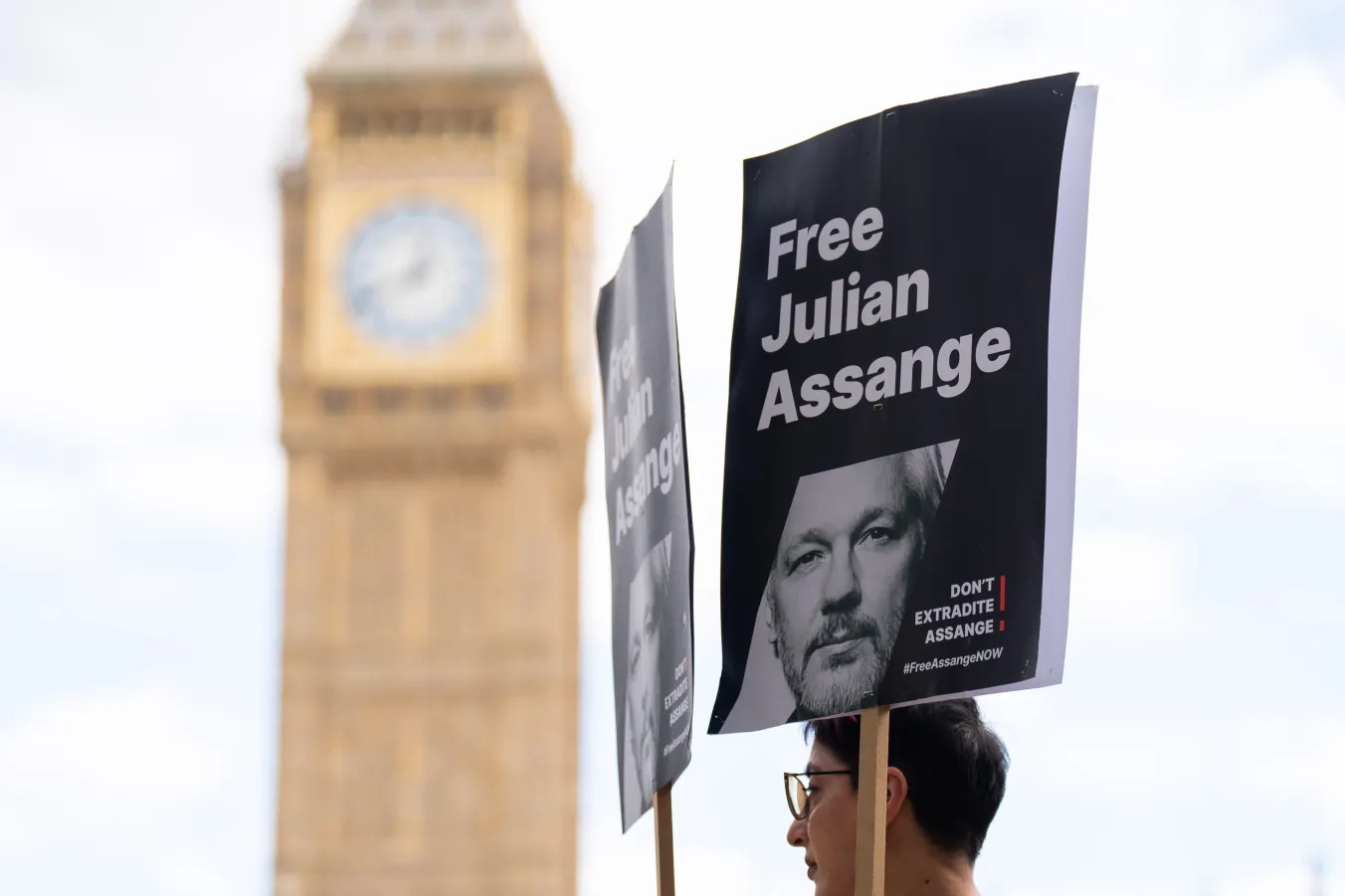
WHEN Julian Assange enters the dock at the Royal Courts of Justice at the end of this month he will have completed nearly five years in HMP Belmarsh. How much longer he will be a British prisoner will be for the court to decide. It is perfectly possible that within days, he will be on his way to Washington.
This, potentially final, stage of his legal campaign to resist extradition comes exactly four years after it began — in Woolwich Crown Court, within the Belmarsh campus.
One member of his legal team told me that the chances of a favourable outcome at this stage are slight. “We are not pleased about the judges who will hear our case, and although our arguments are very strong, they have already been rejected once,” they said.
To the casual observer, Assange’s legal journey appears Byzantine. At the original extradition hearing, the Australian’s legal team made several arguments for rejecting the application, including the following.
The British/US extradition treaty rules out extradition for political crimes; a fair trial is not possible for numerous reasons not least spying on Assange’s meetings with his lawyers; prosecution would violate Assange’s right to free speech; and, custodial conditions in the US would have a catastrophic, clinically predictable, affect on Assange’s health.
Judge Baraitser, who heard the original case, rejected all those arguments, save the possibility that extradition would be “oppressive” in respect of Assange’s health.
Her finding came after several gruelling days in court when Assange’s medical issues were presented in forensic, if harrowing detail. He has attempted suicide on several occasions in the past, a long period of effective solitary confinement during his first year in Belmarsh significantly damaged his health, and solitary confinement of some kind would be a near certainty if he enters the US penal system.
Alas, the hopes unleashed by Baraitser’s humanity were short-lived. The US appealed her judgement, largely on a contentious procedural point, and untested assurances about likely penal conditions. Her ruling was overturned.
The two-day hearing at the end of February will consider two appeals. The first is against Baraitser’s dismissal of all the other arguments against extradition. The second is against the decision by then-home secretary Priti Patel to issue an order for Assange’s extradition as soon as the legal process is exhausted.
Overturning the minister’s decision seems unlikely. Assange’s legal team believes that new evidence in respect of the other arguments is compelling, but accepts that they face an uphill struggle.
Were this application for an appeal to succeed, then the case would be heard in full later in the year.
If all of those arguments are rejected, then the final legal hope of resisting extradition lies with the European Court of Human Rights (ECHR). Assange’s case has already been lodged with the Strasbourg judges.

